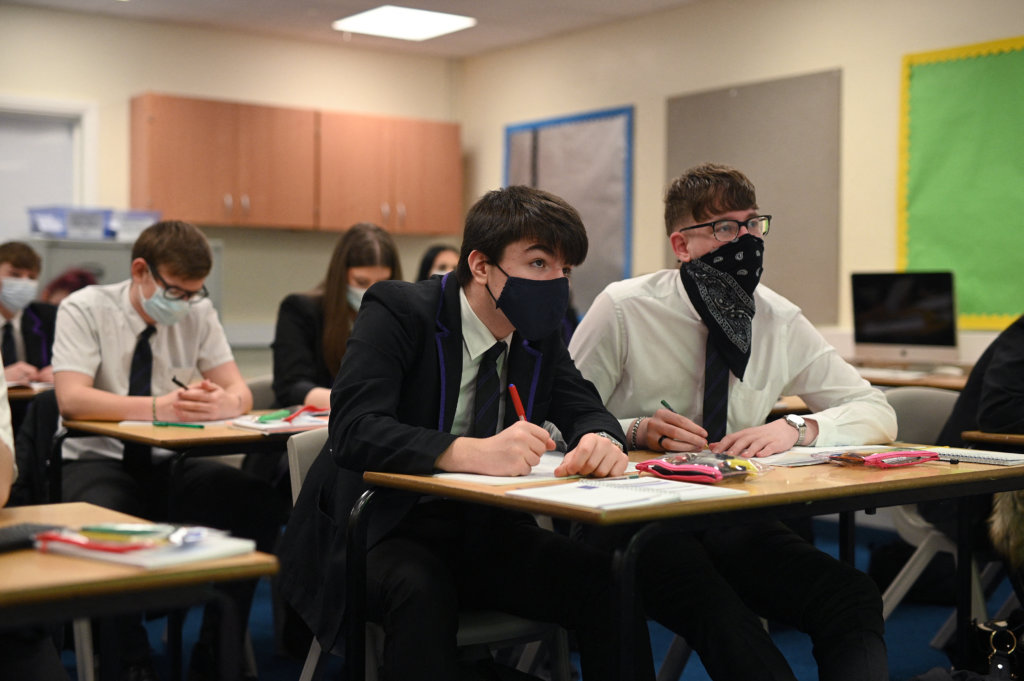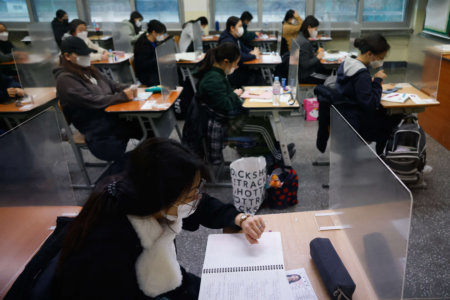
Ofqual, UK’s qualifications regulator and the Department for Education (DfE) recently announced that the 2023 A Level and GCSE exams and grading could follow the rules and structure of the pre-pandemic days.
DfE outlined key details of the changes to the exams on its website. For the 2021-22 A Level and GCSE exams, adaptations were made to accommodate the difficulties that came with the COVID-19 pandemic.
Content
For the 2022 cohort, DfE said that there should be a choice of topics in GCSE English literature, history and ancient history, and a choice of content in GCSE geography as part of a range of adaptations to GCSE, AS and A Levels for this year.
“For 2023, the DfE confirms the return to full subject content coverage for those GCSE subjects,” notes the government’s website.
Furthermore, due to the COVID-19 related disruptions to schooling, the government made a number of adjustments to accommodate students whose learning were affected by Omicron-related procedures. Certain adaptations were put into place to mirror public health measures in slowing down the surging rates of COVID-19 infections.
However, relaxed requirements such as geography fieldwork and science practicals are set to be reversed.
“In 2021 and 2022, Ofqual made a range of adjustments to the arrangements for NEA [non-exam assessment] and fieldwork and practical science requirements in some GCSE, AS and A level subjects to respond to public health measures,” it said.
Ofqual confirmed that for the 2023 cohort, the usual arrangements for NEA, fieldwork and practical science are now in place.

In 2022, lenient adjustments were made to several GCSE subjects to accommodate students who were not able to undergo science practicals or outdoor field trips. Source: Oli Scarff/AFP
A shift to pre-pandemic assessments?
According to i, the decision to replace exams with teacher assessments due to the pandemic in 2020 and 2021 resulted in unprecedented grade inflation. In 2021, 45% of UK A-level entries were marked at A* or A, compared to just 26% in 2019, said the report.
In September 2021, Ofqual announced: “In 2023 we aim to return to results that are in line with those in pre-pandemic years.”
In Ofqual’s announcement yesterday, it notes: “Our intention is to return to the carefully designed and well-established pre-pandemic assessment arrangements as quickly as possible, given they are the best and fairest way of assessing what students know and can do.
“For GCSEs, AS and A levels, Ofqual will, as planned, consider the approach to grading for 2023 in light of outcomes in 2022.”
Gaps between exam papers could still be in place
Ofqual said it would ask exam boards to look carefully at the design of the exam timetable for next year in the light of experience this year, to see if the increased spacing between subjects in the exam timetable should be retained.
Currently, there is a 10-day gap between the papers to reduce the chances of students missing multiple papers in the same subject because of illness.
View this post on Instagram
A Levels, GCSE exams would run in 2022
Amid the pandemic, A Level and GCSE exams were cancelled in 2020 and 2021. Both exams would run this year.
Ofqual recently announced that it would explore the use of online adaptive testing for GCSEs and A Levels.
The watchdog said adaptive testing could replace the use of tiered GCSE exams – where simpler “foundation tier” papers are offered to those candidates thought unable to attain high grades, said the report.
This improved measure for assessing academic performance came to fruition in the wake of the COVID-19 pandemic. Ofqual Chair Ian Bauckham said that the pandemic catalysed questions about not if, but when and how the greater use of technology and on-screen assessment should be adopted.
“All proposed changes need to be carefully accessed for their impact on students, including those with special educational needs and disabilities,” Bauckham said.










